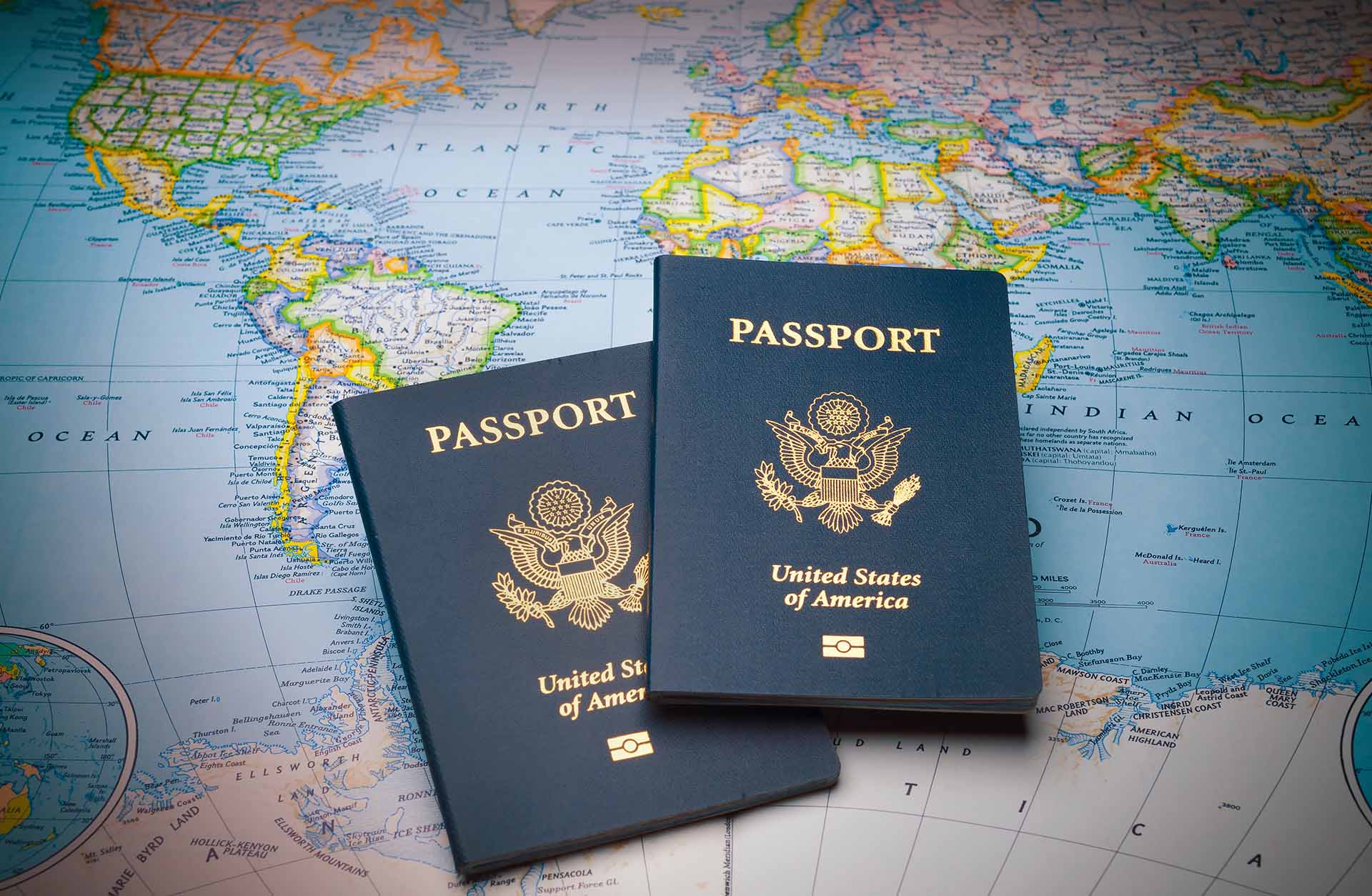Did you know that Japan, according to a legend, was created by the sun goddess? Relocating to Japan, whose first emperors were allegedly descendants of this goddess, too, sounds appealing and majestic at the same time. If you’ve chosen this country to reside in, you should get a bigger picture of its tradition, lifestyle, and culture.
It is one of the most interesting countries in the world with a unique culture and tradition, and that’s why your moving preparation should be thoroughly organized. Especially if you haven’t experienced Japanese food, language, and climate before. Even if your knowledge about the Land of the Rising Sun is superficial at best, you should know that there are difficulties of relocating abroad. You might need a more extended adjustment period.
However, this country, called Nihon or Nippon in Japanese, is a fantastic place for living, and there is no question whether it will broaden your horizons. It will satisfy your need for a fresh start in the country where the cherry blossom is the symbol of fleeting beauty. Your first contact with automatized machines might go smoothly and funny, despite your prejudices. As time goes by, you’ll understand the daily purpose of robots since Nippon is a country where androids are seen everywhere all the time.
So, take a deep breath, relax, and do your homework by reading some of the best international relocation tips before turning over a new leaf in your life.
The First Step – Visa Issues
Most of the expats coming to Nihon only need a valid passport – nearly 70 states participate in the Visa Waiver Program. It allows foreigners to enter the Land of the Rising Sun without a visa in case of short-term trips. If your stay needs to be prolonged for more than three months, a visa is required. There are several types of it:
- Short-term visa
- Long-term visa
- Diplomatic and official visa
How to Find a Job and Make a New Career
If you are interested in this Asian island not only because of sushi and zen gardens but because of the right job position, then you might need to possess the right qualifications and skills. Before hiring a professional moving company and packing to move, make sure to fulfill those requirements:
- A basic grasp of the Japanese language – learning a language abroad can be much easier in a native country
- Relevant experience
- Specialized skills
- Proper working background
Since nearly 30% of the nation is over 65, its definitely lacking workforce, and this can be your chance. Seniors need someone to look after them, and when it comes to this issue, young expats are a perfect choice.
In case you’re interested to start working and are highly-skilled in language teaching, engineering or med-tech, Land of the Rising Sun will welcome your knowledge and experience. Just make sure to acquire a work permit or a long-term visa as one of the obligatory conditions for finding a job abroad.

Visit Tokyo When the Cherry Blossoms
If you can’t decide which city to choose as the most alluring one, let us start with the capital of Nihon, Tokyo, known for its pop culture and neon skyscrapers. As one of the largest metropolitan areas in the world, Tokyo is home to over 36 million people. This city, formerly known as Edo, is excellent for tax-free shopping and enjoying the unique food delicacies. It is home to over 14 top-notch Michelin restaurants.
It is recommended to visit the capital in March or April since springtime is the period when cherry blossoms reach their peak. These flowers are the national symbol of Nippon, and they last for two weeks. This period is known as Hanami.
Other Cities to Consider When Relocating to Japan as an Expat
When one thinks about the Land of the Rising Sun, the first city that crosses their mind is Tokyo. To be honest, it is one of the most populated cities in the world with plenty of amenities and international features. Still, there is a long list of other towns brimming with culture, fantastic job opportunities, and stunning nature.
Depending on your lifestyle and daily needs, you can choose between several of them – find out how to live in another country and pick a perfect place just for you.
Yokohama
When it comes to living expenses, people are attracted to this impressive city not only because of its abundant culture and tradition but cheaper accommodation, too. If you decide to reside in Yokohama, you will be amazed by its Chinatown, the largest one in the country where the main attraction is the cuisine, and you shouldn’t miss some of the favorite specialties – ramen noodles and steamed buns (Manju).
Osaka
When translated, Osaka means a large slope or large hill, and many locals will tell you it is the heart of Nihon because of its vicinity to Nara and Kyoto – the core of the island. It definitely might not be as well-known as the capital but is a friendlier place with a deep-rooted history.
Besides great possibilities for entertainment, Osaka has a reputation for having the best restaurants in the country. If you take into consideration that it is an inexpensive city, as well, you might find this town very suitable for life.
Why Might Kyoto Be a Better Option Than Tokyo?
If you think moving to Tokyo would be the perfect choice for you, only if it wasn’t so expensive, then you should pick the former Kyoto, the seat of Japanese emperors for centuries, as an excellent residential alternative. It perfectly balances traditional and modern, with over 2,000 temples as well as a famous shopping street where you can purchase whatever comes to your mind. Furthermore, the restaurant menu is unique here – turtle soup, blowfish dishes, fresh tofu, etc. In comparison to Tokyo, life is much cheaper here and less crowded.
In case you are attracted to modernity, high-tech architecture, and industry so typical for the capital, Kyoto will be an excellent replacement.

City vs. Countryside – What Should You Choose?
Depending on your needs and expectations, you might find rural areas more attractive than urban. Whatever you choose, have in mind several factors before making the final decision:
- Language capacity – in small towns spoken English is not very common. In case your Japanese language is good, then the countryside is just perfect for you.
- Accessibility – public transportation is not a reliable option when it comes to living in a smaller town. Consider shipping your car overseas – everything will be much easier.
- Peacefulness – the capitals and metropolitan areas are usually crowded places with a fast-paced lifestyle. On the contrary, spending time in a provincial area makes your life easier and fulfilled with social connections.

Think About Living Costs
Although you’ve already become familiar with several of Japan’s bigger towns and have a clear picture related to daily costs, the more in-depth insight will provide you with important data and information when it comes to your budget.
Of course, capital is the most expensive solution. The daily expenses are more affordable in other cities since the cost of rent can be even 50% lower than in Edo. When it comes to utilities, electricity, gas, and water are the most important, and the prices can vary depending on whether you choose to stay in a shared house or a single apartment.
Here are the average costs of living in Tokyo:
- Housing: from $1380 to $3406
- Utilities: from $92 to $138
- Gas expenses: $1,28 per 1 liter
Guide to Schools in Japan
If you are relocating with children, there are several things you have to consider. Finding the right school is probably one of the most important things you have to take care of. You should know that there are a lot of English schools in cities such as Tokyo, and they are quite popular among expats. Although tuition fees are much higher than for a Japanese public school.
But the most significant difference would be the fact that Japanese school years start in April and ends in March. And overall, there are not as many days off as in the US. School buses are something you won’t find here, and there is an entrance exam for high schools. Also, in the majority of them, kids need to take their shoes off and wear special indoor shoes. These are only a few things that are different, you will discover a lot more of them once your children start going to school.
Dining out – More Affordable Option Than Cooking at Home
In the country’s urban districts, many people prefer eating out every day – it’s faster and cheaper than preparing a meal in your kitchen. This activity has one more benefit – it doesn’t require washing dirty dishes afterward. In case you are a fan of home-cooked food, you can find fresh and unusual groceries in supermarkets. The prices are very affordable, so it can be your secret ritual for relaxing – making sushi and rice noodle in your new apartment.

Learn from Nipponians and Live Like a Japanese
This east Asian island nation is, before anything else, honest, polite, and strongly attached to the family. Being noisy and conspicuous in public seems very rude to them, and they avoid any kissing and hugging outside their homes. Also, leaving tips in restaurants is not recommended unless your goal is to offend the staff. However, slurping loudly during your meal doesn’t attract other people’s attention, and it’s just fine.

Japan’s Funniest and the Most Practical Devices
The Japanese are a modest and diligent nation, and they are attracted to new technologies and inventions. Their goal is to mitigate daily activities and to point out the practical side of robotics. Besides the umbrella for the rain-avoider, easy ear explorer, mobile toilet paper, and metro chin-stick, these people invented hi-tech toilets and high-speed passenger trains, also called bullet trains. You might think some of these devices are crazy, but they are usable, and people all over the world like them.
Robot as the Crucial Economic Factor
The Land of the Rising Sun has a problem with birth rate, and there are more seniors aged over 65 than men and women in their twenties or thirties. The scientists concluded that the answer to this problem might be artificial intelligence – robots are the ideal replacement for lack of young workforce and very suitable for taking care of seniors.
Differences in Mentality and the Way of Life
Although Asian nations accepted many influences from the West, they still have their specific religion and view on life. Tranquillity is probably the best word when one thinks about this nation – violence, drug use, and homicide happen very rarely. They like peace and nature in all their forms. Especially when it comes to the human body – in general, they do not like tattoos as they are usually associated with criminals. The body is a person’s temple, and any marking on purpose is labeled as desecration.

Fun Facts and Tips About Japan:
If it seems like the Japanese are unique in all spheres of life – that’s probably the truth. Besides the specific food, a life seen from a unique point of view and impressive, thousand-year-old tradition, they try to incorporate all of these in their lifestyle. That’s why living abroad sometimes might be magical, and sometimes full of surprises.
Before you leave your current home, friends, and family, and relocate overseas, you might find it interesting to know more fun facts about this extraordinary culture, such as:
- For them, Christmas is a romantic holiday
- You should take off your shoes entering someone’s home, in most cases
- Women in Nippon would blacken their teeth for centuries
- Don’t drink or eat while walking
- Eating horse meat is regular there
- The first Geisha were – men
- Bonsai is appreciated because of its small size and, in general, symbolize peace, balance, and harmony
Those who want to relocate because of work usually have the help of their company to manage the entire process, but here are some tips for those who want to go overseas:
- Carry only essential with you and ship everything else
- Create a copy of all important documents and papers, for example, passport, ID, university degree, etc.
- Prepare for questions at the border
- Find a place to stay and settle your bank account first
- Check if you qualify for a tax deduction of relocation expenses
You’re Now One Step Closer to Japan
If you want to do an overseas relocation, you couldn’t have picked a better place to do that. Although now you might be worried about some things like, how to find work or ideal schools for kids, it will all eventually fall into its place. We hope this guide was a helpful introduction to the Japanese way of living and that it helped you get a better picture of it.










